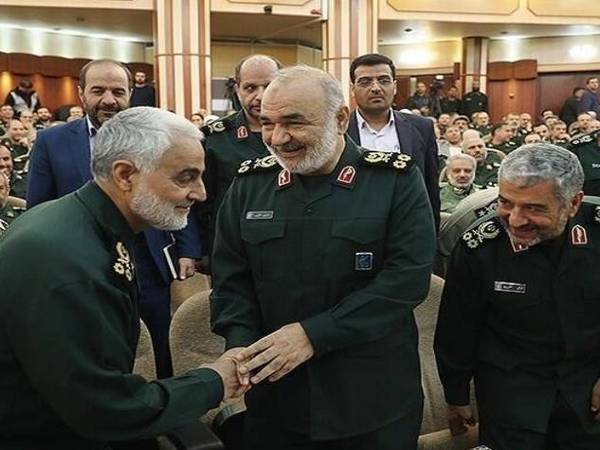An unnamed US official has told CNN that Iran has dropped one of its key demands in the nuclear talks, while leaks from Tehran portray extensive US concessions.
CNN quoted the US official late Friday that Iran’s thorny demand to remove its Revolutionary Guard (IRGC) from the US list of Foreign Terrorist Organizations is no longer mentioned by Tehran in its latest response to a European Union draft proposal.
Leaked information from Iran obtained Friday by Iran International corroborates this development, as Iran’s chief negotiator Ali Bagheri-Kani allegedly told reporters in a closed-door briefing this week that the IRGC issue will be taken up in separate future talks.
What remains unclear are dozens of companies and banks sanctioned by the United States that are affiliated with the IRGC. It is not clear if the US will remove sanctions on most or some of these entities.
The leaked information from Iran, although not specific, points to 17 banks and numerous companies and quasi-state institutions being relieved of sanctions, while the official speaking to CNN said Iran “also dropped demands related to delisting” several companies linked to IRGC.
The apparent contradiction might be entirely an issue of numbers. While dozens of entities were sanctions by the Trump administration, a few might be kept on US sanctions, while many more might be removed. In a sense, at this point when there is no official details about the talks, both the leaked information from Tehran and the unnamed official in Washington might be semantically telling part of the truth.
Iran International reported on Thursday that information circulating among pro-government hardliners in Tehran said sanctions will be removed from 150 institutions or entities, all affiliated with the state or with centers of power such as “charitable” organizations linked to the office of the Supreme Leader and possibly the IRGC.
One name mentioned is a huge business conglomerate, presented as a charity, directly run by Supreme Leader Ali Khamenei’s office. The entity is called The Execution of Imam Khomeini's Order (EIKO), which is known in Persian simply as Setad, which was not sanctioned specifically for Iran’s nuclear program.
In this sense, the problem of whether to delist IRGC or not is clouding the main issue in the US negotiations policy. The Biden Administration has been claiming that it will not lift non-nuclear sanctions, such as those imposed for links to terrorism, Iran’s missile program or human rights violations. EIKO was sanctioned on January 13, 2021, days before President Trump left office, under the Executive Order (E.O.) 13876, which was imposed for Iran’s regional destabilizing activities and its missile program.
Therefore, the more important issue with US concessions to Iran is not merely keeping the IRGC and a few of its companies sanctioned, but more broadly what other regime-affiliated entities will be taken out of sanctions.
In the leak about Bagheri-Kani’s briefing, it is mentioned that the IRGC sanctions will remain in place, but they will have a more “symbolic” significance, since the US has agreed not to penalize other entities having interactions with the military-intelligence force dominating Iran’s political and economic landscape.
